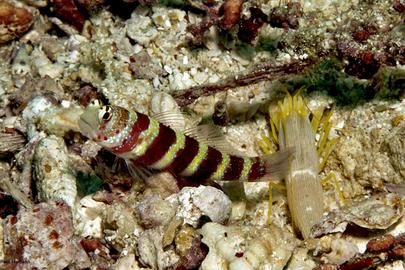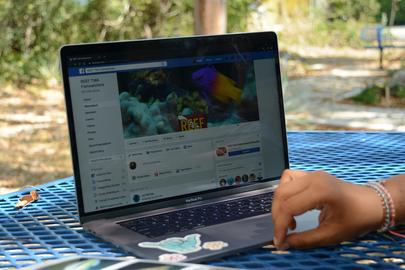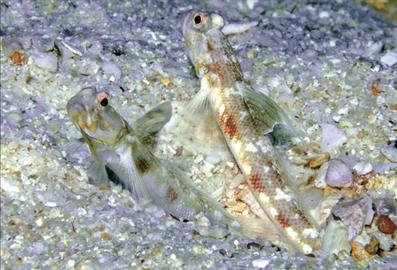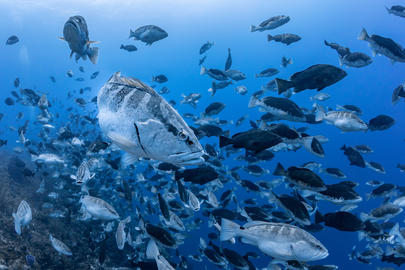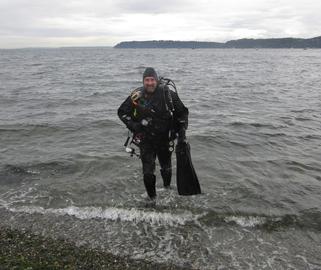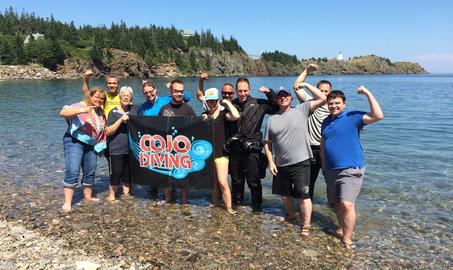Are you looking for a way to support REEF during this uncertain and volatile time? Please consider becoming a REEF Guardian by setting up a monthly donation. As a nonprofit organization, consistency is vital to our ability to protect ocean species and places. The support of REEF Guardians ensures that our important marine conservation work is able to continue.
Shelter in place? No problem for April's Fish of the Month, the Gorgeous Shrimpgoby (Amblyeleotris wheeleri)!
April is Earth Month, and as we look forward to Earth Day on April 22, you might be looking for ways to stay connected to the environment in these uncertain times. We are all facing new and unfamiliar challenges as we adjust to this rapidly changing situation and navigate disruptions to our daily life. Here are some fun and easy activities you can do from the comfort and safety of your home:
A bucket list item for many REEF surveyors - discovering a new species. And even better, getting a species named after you. This has happened a handful of times over the last couple of decades, and one of our surveyors now has the honor of it happening twice! One of REEF's most prolific surveyors, Janet Eyre, now has a beautiful shrimpgoby named in her honor after discovering the fish on a recent trip to Indonesia.
A landmark scientific study published from the Grouper Moon Project was featured as the Editor's Choice by the editor of Science in the January 24 2020 issue. Each week, the editor selects important papers from other journals, providing a roundup of weekly science policy and related news.
While everyone knows that marine mammals are well known sound producers, did you know that many fish species also produce and use sound to sense their environment? Marine environments are teeming with underwater sounds from animals, human activities (shipping, costal development, oil and gas exploration etc.), and geological processes such as rain, wind, and water flow. The combination of the sounds, called a soundscape, can be used to study the ecology of animals that produce, hear, or respond to sound.
REEF members are the heart of our grassroots marine conservation programs. A diverse community of divers, snorkelers, and ocean enthusiasts support our mission to conserve marine environments worldwide.
This month, REEF is proud to highlight one of our outstanding Conservation Partners: COJO Diving, located in Lincoln, New Brunswick, Canada. REEF Conservation Partners are active organizations and dive shops dedicated to protecting marine environments. As valued REEF ambassadors, they teach fish ID classes, host survey dives, organize volunteer events and more.


